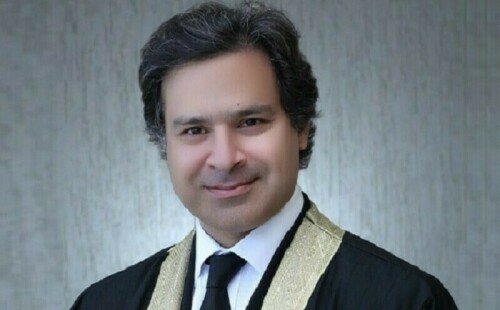KABUL, Aug 10: A Pakistan-Afghanistan Peace Jirga debating ways to end Al Qaeda-backed terrorism in the region heard calls on Friday for Western forces to be thrown out of Afghanistan in favour of troops from Muslim countries.
Pakistani tribal elder and former MP, Malik Fazel Manaan Mohmand, told 700 delegates seated in a giant white tent that the presence of Nato and US-led foreign forces in Afghanistan was a major cause of insecurity.
Pakistan had helped Afghanistan battle the invading Soviets in a jihad, but Kabul had now brought in a new foreign force, he said.
“How can I accept that yesterday’s jihad against the Russians was a must, and today this is not a jihad?” he asked.
“There is no need for Nato forces. Bring Islamic countries' troops,” said Mohmand, from Pakistan's Mohmand Agency, in a heated address.
His call came on the second day of a three-day peace jirga, aimed at persuading the tribes from the remote border regions to root out Taliban and Al Qaeda elements using their mountainous territories as hideouts.
The unique gathering of delegates from both sides of the border — tribal chiefs, parliamentarians and other leading figures -- went into closed session on Friday which was expected to extend into Saturday.
Another delegate, Afghan MP Sardar Mohammad Rehman Ogholi said it was undeniable that some foreign terrorists were entrenched in the Pakistani tribal belt along the Afghan border and should be asked to leave the region.
“If they did not, Pakistan will grab them by one hand and Afghanistan by the other and we will together throw them away,” the parliamentarian said, to warm applause.
“It is also clear that they are uninvited guests,” he said, referring to the Al Qaeda movement made up of Jihadis from various Muslim countries.
“We share a common book, the holy Quran, religion and language. We have never fought on any of these issues,” said Afghan parliamentarian Shukria Barakzai.
“Let's put our hands together to solve our problems... Let's talk for peace,” she said.
The meeting is due to wrap up Sunday with a joint strategy to fight the extremists, amid growing unrest which has seen a spike in terror attacks in both countries.
Analysts say the four-day meeting, the first of its kind, is unlikely to immediately do much to quell the violence but could forge better ties that may bode well for a long-term approach.
On Friday, delegates from the two countries were divided into five committees to talk about investigating terrorist groups, intelligence sharing and drugs, said Alimi Balkhi, an Afghan lawmaker, who headed one of the working groups.
Interior Minister Aftab Ahmed Khan Sherpao said the proceedings of the jirga were progressing satisfactorily as both sides had expressed desire to remove misunderstandings which had hindered the establishment of durable peace in the region.
Talking to reporters after the first session of the jirga, Mr Sherpao, who is also the Chairman of the joint jirga, said that delegates from both countries held fruitful talks on various core issues.—Agencies














































Dear visitor, the comments section is undergoing an overhaul and will return soon.